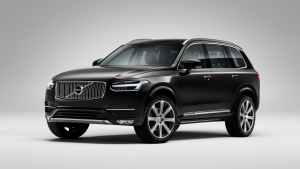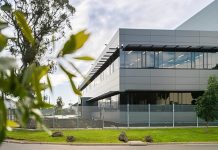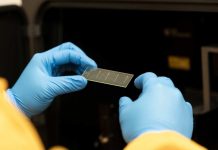Swedish carmaker Volvo is set to become the first automotive company to introduce autonomous cars on Australian roads when it commences its test program in November this year.

Image credit: volvocars.com
The Australian-first trials of automated vehicles will coincide with a Driverless Vehicle Conference to be hosted by the state from 5-6 November, and will be the first of many trials nationally, with discussions underway in a number of jurisdictions.
Volvo will be testing its soon-to-be-released XC90 SUV on the Southern Expressway at Tonsley Innovation Park and at Adelaide Airport to demonstrate the self-driving and self-parking functionality of the vehicle used in their Drive Me project, which aims to put self-driving cars in the hands of real customers by 2017.
The company said it will be conducting the test program in conjunction with road research agency ARRB Group, Flinders University, Carnegie Mellon University, the RAA and Cohda Wireless.
Premier Jay Weatherill said the new technology would only improve safety, reduce congestion and lower emissions, but also provide a real opportunity for South Australia to become a key player in the emerging driverless vehicle industry.
“This trial presents a fantastic opportunity for South Australia to take a lead nationally and internationally in the development of this new technology and open up new opportunities for our economy,” he said.
“It’s predicted that within just 15 years, the international driverless car industry will be worth $90 billion, so we want to encourage other global businesses to come to South Australia to develop and test their technologies. Driverless cars have the ability to revolutionise transport in this country and we want to be at the forefront of that paradigm shift. It is our ambition to be a test bed for innovation across a whole range of areas such as this.”
The driverless car trials will involve multiple vehicles conducting manoeuvres such as overtaking, lane changing, emergency braking and the use of on and off ramps.
ARRB Managing Director Gerard Walton said the Australian Driverless Vehicle Initiative will put Australia on the map along with the UK, the US and Sweden as international leaders in automated vehicle research by bringing together technology partners Telstra and Bosch and automotive partner Volvo.
“Automated vehicles are far from science fiction, but rather a short-term reality that Australia needs to be prepared for. “We’re seeking technology and automotive industry partners to assist us in Australia’s driverless vehicle innovation,” Mr Walton said.
“ARRB will establish how driverless technology needs to be manufactured and introduced for uniquely Australian driving behaviour, our climate and road conditions, including what this means for Australia’s national road infrastructure, markings, surfaces and roadside signage.”


















